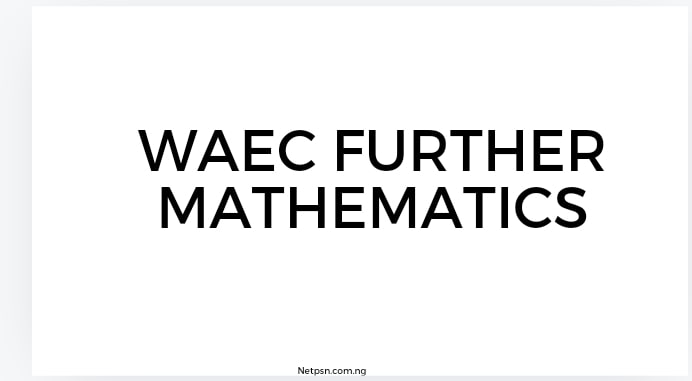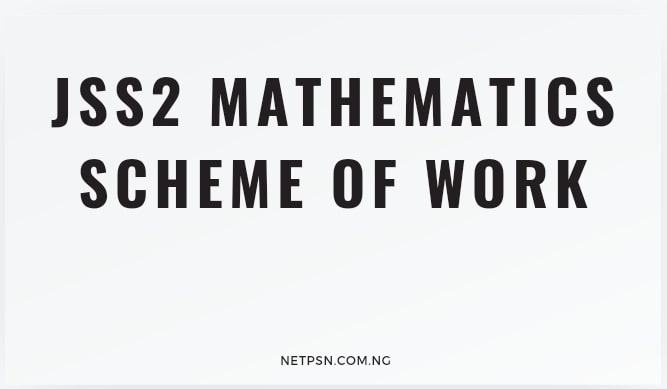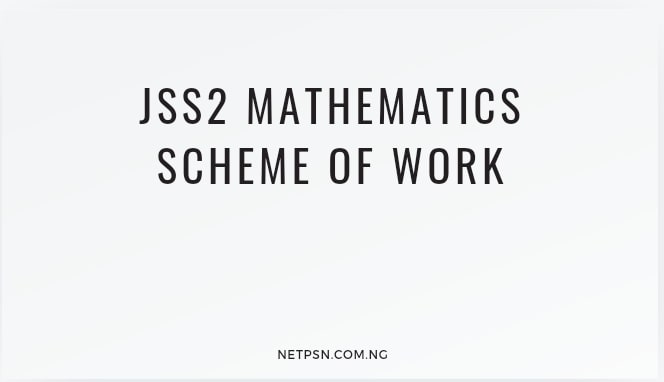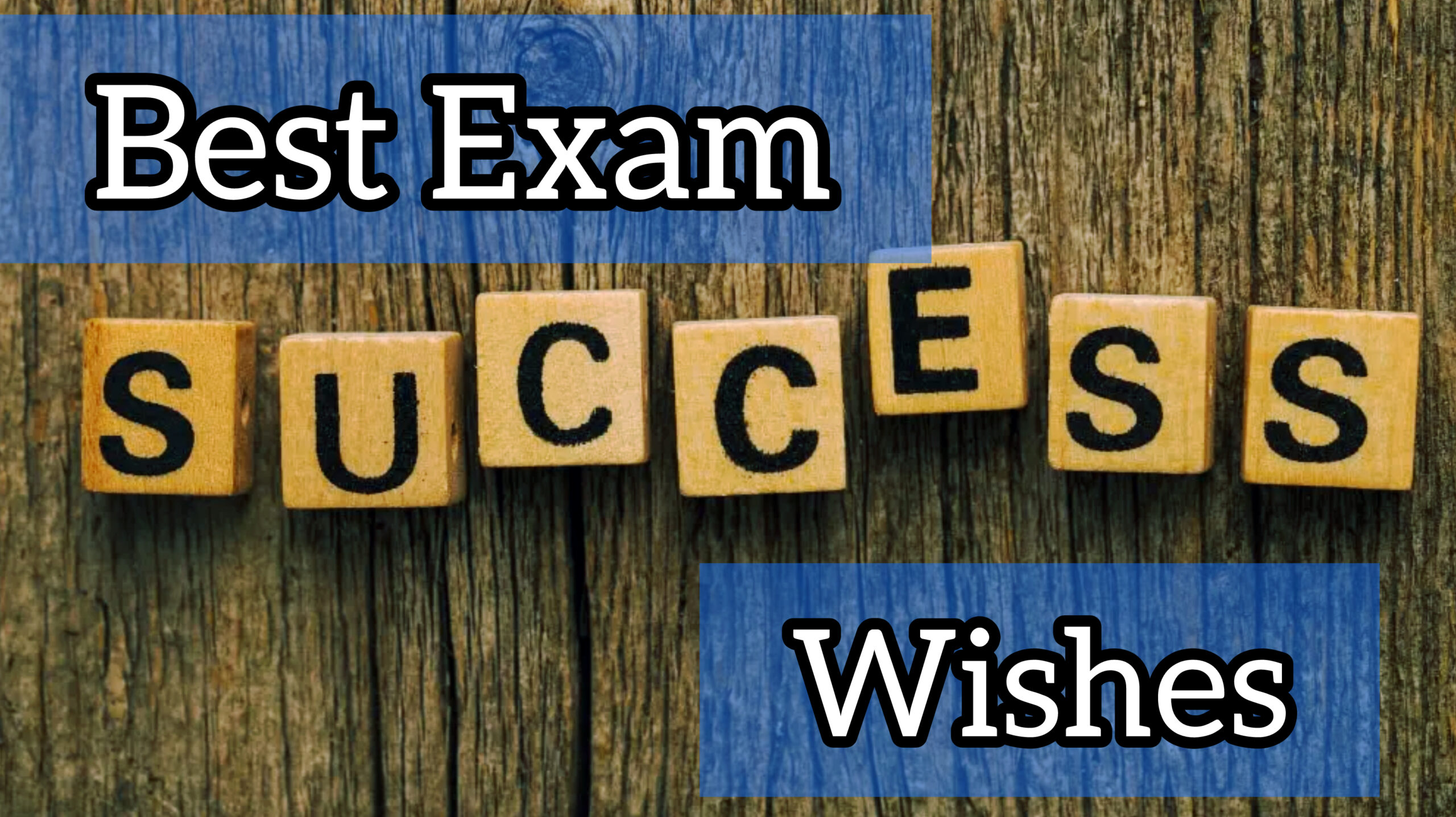WAEC Further Mathematics is a demanding subject in the WAEC syllabus, designed to challenge students with advanced topics that bridge secondary school learning with university-level concepts. Excelling in this subject requires a firm grasp of the core principles and diligent preparation. This guide provides an in-depth look at the most critical topics in WAEC Further Mathematics and offers essential study tips to help you succeed.
WAEC Further Mathematics Syllabus
The WAEC Further Mathematics syllabus is structured to cover three primary areas: Pure Mathematics, Statistics and Probability, and Vectors and Mechanics. These areas represent advanced mathematical concepts that students must master to score well in the examination.
Key Topics to Focus On
- Pure Mathematics
- Sets and Set Theory: Sets form the foundation of modern mathematics. Understanding operations like union, intersection, and complement, along with the use of Venn diagrams, is crucial.
- Surds and Indices: These are tools for simplifying expressions, particularly in complex equations. Mastering surd manipulation and index laws helps simplify algebraic problems.
- Functions and Graphs: This includes various types of functions—linear, quadratic, exponential, etc.—and their corresponding graphs. Being able to analyze and interpret these graphs is key.
- Calculus: Arguably the most important topic in Pure Mathematics, calculus covers differentiation and integration. Understanding how to differentiate and integrate functions, and apply these techniques to solve real-world problems, is essential.
- Statistics and Probability
- Descriptive Statistics: This involves summarizing data using measures such as mean, median, mode, variance, and standard deviation. These statistical tools help interpret and analyze data sets.
- Probability Theory: Understanding basic probability, conditional probability, and the application of probability distributions (such as binomial and normal distributions) forms the backbone of this topic.
- Vectors and Mechanics
- Vector Algebra: This involves the manipulation of vectors, including vector addition, scalar and vector products, and their geometric applications.
- Mechanics: A vital part of physics and mathematics, mechanics covers the principles of motion, forces, energy, and equilibrium. These topics are essential for understanding the physical world and how mathematical principles apply to it.
Effective Study Tips for WAEC Further Mathematics
1. Create a Study Plan
Design a detailed and realistic study plan that allocates time for each topic. Focus more on topics where you feel less confident, but ensure that every subject area is covered in the run-up to the exams.
2. Solve Past Questions
One of the best ways to prepare for the WAEC Further Mathematics exam is by practicing past questions. This helps familiarize you with the exam format and highlights common question types. Additionally, solving these questions under timed conditions can improve your speed and accuracy.
3. Use WAEC-Recommended Resources
WAEC recommends specific textbooks and resources that provide detailed explanations and worked examples. Make use of these materials, as they are tailored to the WAEC syllabus and often clarify difficult concepts.
4. Break Down Complex Problems
Some topics in Further Mathematics, like calculus and mechanics, can be overwhelming. To manage this, break down complex problems into smaller, more manageable parts, and tackle them step-by-step. This approach makes solving difficult problems easier.
5. Join a Study Group
Joining a study group can be extremely helpful. Discussing problems with your peers can give you new perspectives on challenging topics, and explaining concepts to others reinforces your own understanding.
6. Seek Professional Help When Necessary
Do not hesitate to seek help from teachers or tutors when you encounter difficult topics. Sometimes, a different explanation or perspective is all it takes to understand a complex concept.
Additional Topic: Matrix and Determinants
Matrices and determinants are crucial in solving systems of linear equations, a topic that often features in WAEC exams. Mastery of operations such as matrix multiplication, finding inverses of matrices, and calculating determinants will greatly benefit your overall performance.
- Matrices: Understand matrix notation, types of matrices (square, identity, diagonal), and matrix operations like addition, subtraction, and multiplication.
- Determinants: Learn how to compute determinants for 2×2 and 3×3 matrices, and apply Cramer’s Rule to solve systems of linear equations.
Conclusion
Success in WAEC Further Mathematics requires not only an understanding of advanced mathematical concepts but also the ability to apply these concepts in various scenarios. By focusing on the key areas of Pure Mathematics, Statistics and Probability, Vectors and Mechanics, and additional topics like Matrices and Determinants, students can gain the skills and confidence needed to excel. Consistent practice, proper time management, and the use of appropriate study resources are essential for achieving top results in this challenging subject.
FAQs
Q1: How do I best prepare for the WAEC Further Mathematics exam?
A: Start by creating a structured study plan that covers all topics in the syllabus. Practice past questions regularly, and focus on understanding key concepts rather than memorizing formulas.
Q2: What are the most challenging topics in WAEC Further Mathematics?
A: Topics like Calculus, Mechanics, and Probability tend to be more challenging due to their complexity. However, with consistent practice and the right study materials, these topics become manageable.
Q3: Are matrices and determinants important for WAEC Further Mathematics?
A: Yes, matrices and determinants are frequently tested in the exam, particularly for solving systems of equations. Mastery of these topics can significantly improve your overall score.
Q4: How can I improve my problem-solving speed?
A: Regular practice is key to improving speed. Additionally, working on timed exercises and learning shortcuts for complex calculations will help you manage time effectively during the exam.
Q5: What textbooks should I use for WAEC Further Mathematics?
A: WAEC recommends specific textbooks like “New General Mathematics” and “Further Mathematics for West Africa.” These books provide detailed explanations, examples, and practice exercises tailored to the WAEC syllabus.



















+ There are no comments
Add yours